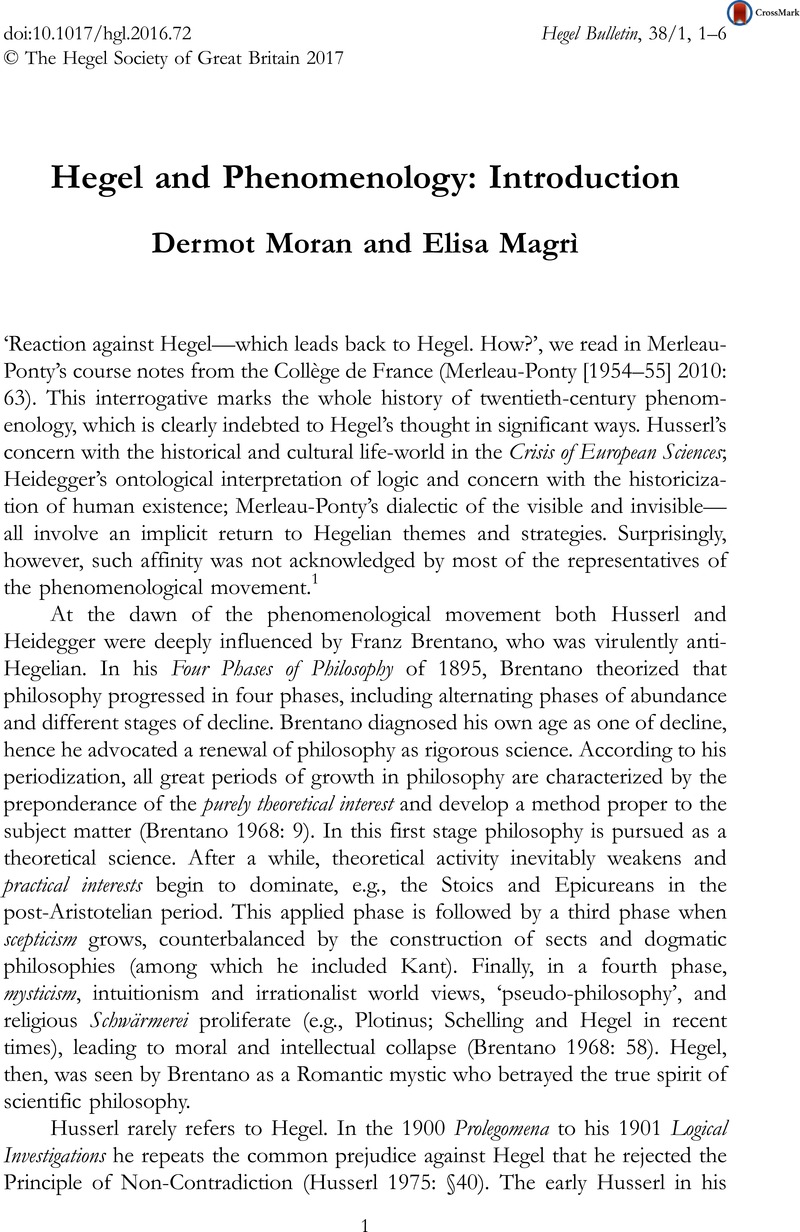Crossref Citations
This article has been cited by the following publications. This list is generated based on data provided by Crossref.
Smart, Barry
2020.
The Blackwell Encyclopedia of Sociology.
p.
1.
Lerner, Rosemary R. P.
2023.
Hegel and Husserl on Phenomenology, Logic, and the System of Sciences: A Reappraisal.
Husserl Studies,
Vol. 39,
Issue. 3,
p.
301.
Burns, Tony
2023.
The Palgrave Handbook of International Political Theory.
p.
321.
Matthews, Paul R.
2024.
Hegel,
Selbstischkeit
, and the experiential self
.
Inquiry,
p.
1.
Smyth, Bryan
2025.
Encyclopedia of Phenomenology.
p.
1.



